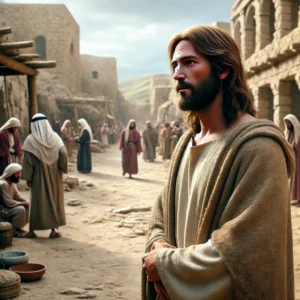
The life of Jesus of Nazareth is one of the most influential stories in history, shaping the beliefs and values of millions across the globe. However, over centuries, myths, legends, and interpretations have blurred the line between historical facts and religious beliefs. Let’s explore what history says about the life of Jesus and distinguish between fact and fiction.
Historical Evidence of Jesus

Historians agree that Jesus was a real person who lived in the 1st century CE in the region of Judea, which is modern-day Israel and Palestine. Non-biblical sources such as the Roman historian Tacitus and the Jewish historian Josephus briefly mention Jesus, confirming his existence. While these accounts do not go into great detail about his life, they support the view that Jesus was an important figure in his time.
The Life of a Preacher

Jesus is widely regarded as a Jewish preacher and teacher. He traveled around Judea, preaching about love, forgiveness, and the coming of the Kingdom of God. His teachings were revolutionary for the time, challenging the rigid social and religious norms. This message attracted a following, particularly among the poor and oppressed.
Miracles: Fact or Belief?

Many stories about Jesus involve miraculous events—healing the sick, raising the dead, and turning water into wine. From a historical standpoint, there’s little evidence to confirm these miracles. For believers, these are essential aspects of Jesus’ divine nature, while historians see them as part of the oral traditions passed down by his followers. Whether fact or belief, these stories were crucial in spreading his message and establishing his reputation.
The Crucifixion

One of the most well-documented events in Jesus’ life is his crucifixion under the Roman governor Pontius Pilate. Both Christian and non-Christian sources agree on this event. Crucifixion was a common punishment for criminals and political rebels at the time, and Jesus was executed for challenging the status quo and claiming to be the Messiah, a figure prophesied to save the Jewish people.
Resurrection: Faith vs. History

The resurrection of Jesus is the central belief of Christianity—that he rose from the dead three days after his crucifixion. While this is a foundational religious claim, historical evidence is inconclusive. Most historical records do not confirm or deny the resurrection. For believers, it’s a matter of faith, and for historians, it remains beyond the scope of verifiable fact.
Conclusion
The historical life of Jesus is a blend of well-documented facts and deep religious beliefs. While historians can confirm certain aspects of his life, such as his role as a preacher and his execution, many elements—particularly those related to his divinity—remain a matter of faith. Understanding both the historical and spiritual sides of Jesus’ life allows us to appreciate his enduring influence on the world today.



